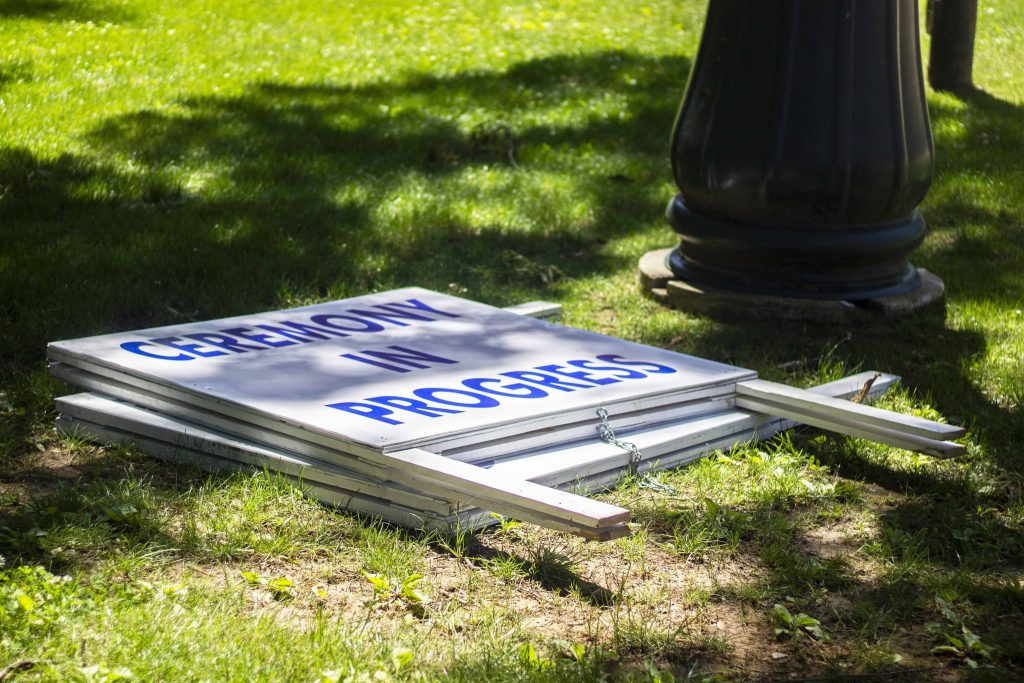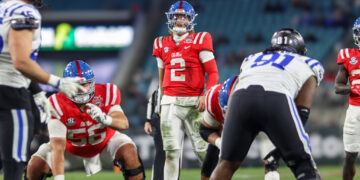
Almost two months ago, I was emailing back and forth with a source for a story, trying to schedule a time that we could go on a walk and I could ask him some questions. We settled on March 13, the day that the University of Mississippi announced that the last eight weeks of the semester would be shifted online and that students would not be returning to campus.
Following the news, I sent him a quick email apologizing for having to cancel our conversation. He responded: “No problem. Call me or email when you can. The world just changed.”
He was right. This machination of contemporary civilization was forever altered on that day and in the few following it. The invisible enemy has killed hundreds of thousands globally, put over 20 million people out of work and exposed cracks in a society that desperately needs retooling.
Yet here I am, perturbed at the prospect of not getting to walk across a stage in celebration of four years of putting in just enough effort to even have that right.
I would love to sit in my ivory tower and muse about beer showers, late night conversations with professors and friends I’ll never see again. I would blather on about some platonic idea that the university is evolving and how The Daily Mississippian has helped mold it. I would probably evoke Frank Everett, attempting to cleverly deconstruct his “Heart of Ole Miss” poem and find new meaning in it.
However, all things considered, I guess Everett was rather prescient in writing that one never graduates from Ole Miss.
Before writing this, I took a long drive through campus, trying to recapture some of the feelings that I’ve felt in my four years here. It’s arguably the most beautiful day of spring yet, so cool that my graduation gown would have actually been functional to combat the breeze.
I should be walking through the manicured, green grass of the Grove with my grandmother. I’d hold her hand and thank her. She’d hold mine and tell me stories of her time at the university. We’d go look at my grandfather’s Hall of Fame picture in the student union and reminisce on how much has changed in 60 years.
Instead, I’m wearing sweatpants in my living room and watching names fly across a screen like the Star Wars intro.
My heart hurts for the first-generation college student who will never get to proudly lift their diploma in exuberation. It hurts for the international student who is streaming graduation at midnight halfway across the world. It hurts for the professors and staff who won’t get to impart that last bit of wisdom.
But I, like most, know that this rolled piece of paper is merely a receipt. It’ll be framed, hung in offices, represented on CV’s and paid off by loans in the years to come. We didn’t come to Ole Miss in search of a diploma, we came for the affirmation it brings.
Today, over 5,000 students will have their life transformed; the economic impact wrought by a bachelor’s degree is countless. Some of my peers will use it as a vessel to establish businesses, run for high office and attain power. But most will use it for more traditional pursuits. They’ll start careers, build families and break boundaries. The cascading weight of this degree will multiply tenfold.
And the university will do this again next year. They’ll graduate another 5,000, and 5,000 more the year after that, the same way it’s been done for over 150 years. We’ll all be footnotes, our names etched into yearbooks, red bricks in the Circle and in the mouths of friends who tell our stories. But the challenge in graduation is answering the question: ‘I know how I’ll remember Ole Miss. How will it remember me?’
In thinking back on my time at Ole Miss, I’m reminded of something Sparky Reardon, the indomitable former dean of students and a mentor of mine, wrote to the class of 2020 in August 2016.
“Somewhere between ‘hello’ to Ole Miss and ‘goodbye’ to Ole Miss, there’s a lot that goes on,” he wrote. “What you learn between ‘hello’ and ‘goodbye’ at Ole Miss will form who you are and will be the foundation for the life that you pursue and the legacy that you leave to the next generation. What happens in the interim will help the person you are, meet the person you will be.”
It’s okay to cry because it’s over, smile because it happened, yearn for a more perfect ending or feel nothing at all. That’s our reality now.
And while there are innumerable platitudes I could share about this place and its people, I’ll spare you and give Sparky the last word.
“Every day in between, if you learn to live, laugh, and love to cry, your goodbye to Ole Miss will be easy, free of what ifs and regrets.”
I sure hope I did.



























